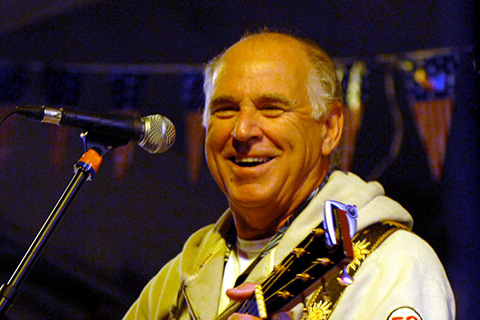About that choice of trustee
Wastin’ away again in Margaritaville
Searchin’ for my lost shaker of salt
Some people claim that there’s a woman to blame
But I know it’s my own damn fault
—Jimmy Buffett, Margaritaville, third chorus
The estate of singer-songwriter Jimmy Buffett, who died in 2023, looked well planned. Under his will, last amended in the year of Buffett’s death, each of his three children were to receive a $2 million trust, and the balance of the estate went to his surviving spouse, Jane Slagsvol, in a marital trust. The estate included song royalties, an interest in the Margaritaville restaurant chain, $2 million in musical equipment and investment assets, and was estimated to be worth $275 million. Jane had the right to receive 100% of the trust income, payable at least annually, for the rest of her life. So far, pretty standard.
The nonstandard element was that the trust was to have two co-trustees, Jane and an independent third party. Jane might receive additional distributions from the trust beyond the annual income for any other purpose, but only if the independent third party decided to make such distributions. Buffett named his accountant/business manager of 30 years, Richard Mozenter, to be that independent trustee. That might have been a logical choice, given the accountant’s intimate familiarity with all aspects of the Buffett family fortune.
Unfortunately, it hasn’t worked out as smoothly as Buffett must have hoped.
Jane asked her co-trustee for a report on her trust one month after Buffet’s death. She didn’t get that report for 16 months, just excuses for why it wasn’t ready yet. The analysis she finally received was disappointing, as it projected her income from a $275 million trust to be just $2 million per year, less than 1%. What’s more, the independent trustee and his firm had taken $1.74 million in fees for managing the trust in 2024!
Jane filed a lawsuit to have the independent trustee replaced, alleging that Richard’s failure to provide prompt and complete information about the trust assets violated his fiduciary duty and that the assets themselves were being mismanaged. Richard countersued to have Jane removed as co-trustee. He claimed that Buffett had believed that Jane required help with financial management, which is why he structured the trust with an independent trustee. He further claimed that Jane had been uncooperative. However, it should be noted that Richard’s legal fees are being paid by Jane’s trust! She has to pay for both sides of this legal controversy. You can read more about the case at CNBC’s website. A hearing is scheduled in August.
What did Jimmy Buffett do wrong in his estate planning? Was it “his own damn fault”? From the press reports, it would seem that Jimmy failed to have a meeting with Jane and Richard in which he explained exactly why he was structuring the estate plan as he did. He failed to get everyone’s expectations into line with his plan. Buffett could have included a provision in his trust covering the process for replacing a trustee, which might have reduced or eliminated the legal controversy. Some trusts now include a “trust protector” whose job it is to supervise changes to the trust when post-death events go in an unexpected direction.
Was it wise to name the accountant as the independent trustee, given that the accountant had a business interest at stake as well? Probably not. The better course for a truly independent trustee is to name a corporation that makes a business of trusteeship, such as Garden State Trust Company. Corporate trustees are well versed in all fiduciary duties, they are fully staffed and have the necessary facilities and procedures for successful trusteeship. The accountant/business manager/lifelong friend could have been hired as a consultant to the corporate trustee to provide the unique insights into managing the marital trust. That might have cost more at the outset, but large legal fees might have been avoided.
In the linked CNBC article, estate planner Stewart Albertson made this observation about trust litigation: “In terms of problem cases, the ones we see, they rarely involve professional trustees. It’s almost always somebody who’s a friend. That tends to be the worst.”
To learn more about our trustee services, contact us at your convenience.





